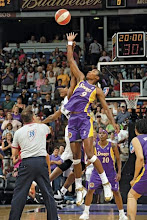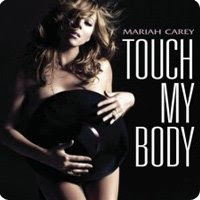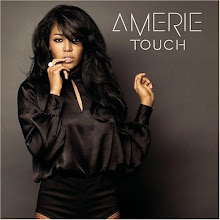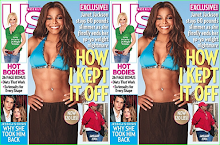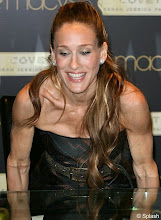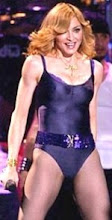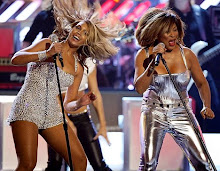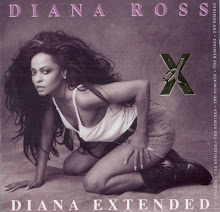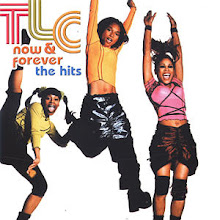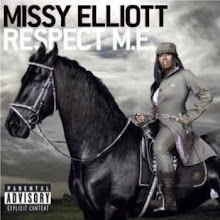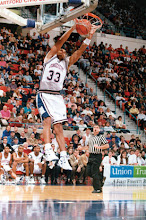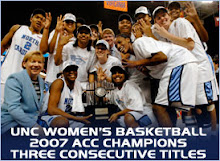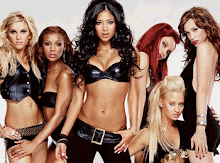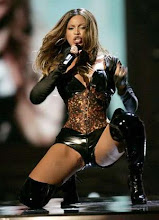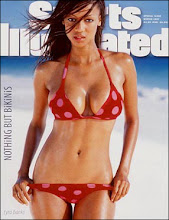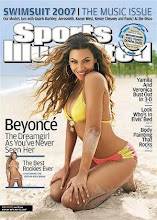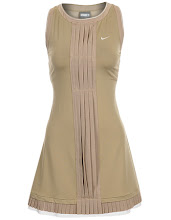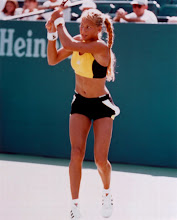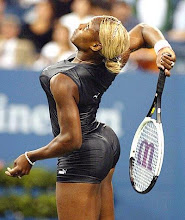Surprisingly, Women’s Basketball is more popular outside the United States, as many players go abroad to earn more money in places like Europe. Given the immense popularity of men’s Basketball in America this fact is somewhat shocking. Also women’s sports in general have been gaining more attention and becoming more lucrative, thus one would assume that women’s basketball would be one of the major beneficiaries. However this is not the case. So the question is why is women’s basketball more popular in foreign countries than here? In my opinion, the answer lies in the racial make up of women’s basketball leagues. The WNBA is predominately comprised of African American females, while European leagues are not. Before the WNBA was set up in the mid-1990’s, Europe and Asia had well established women’s basketball leagues which received much attention.
While European Women’s leagues are still trying to gain support, there does not seem to be the disparity in popularity between men and women’s basketball that exists in the U.S. Many theorists suggest that the image of American women’s basketball suffers because of the negative stereotypes associated with black women; such as hypersexuality, and bad motherhood. These oppressive ideologies could be the reason why women’s basketball does not receive as much media attention. Sports are a multi-billion dollar industry, Men’s Basketball profits extremely well, however women’s does not. It seems that these negative associations make large endorsement companies reluctant to associate themselves with the sport. Because of its reputation women’s basketball seems incompatible with mainstream society. Sports media and companies only market things that will be profitable, therefore given the challenge that the WNBA provides to mainstream norms or race, gender and sexuality, it becomes marginalized.
I was surprised to find when conducting research on sports magazine covers that black female basketball players were rarely present. In its 10 years of existence, ESPN magazine has never had a black female basketball player on the cover. There have however been other black female athletes on covers, mainly from tennis (Venus and Serena.) Furthermore there have been white female basketball players. Thus it seems that the problem is not necessarily with black female athletes, or with women’s basketball players, but it arises when the two combine. This suggests that the message a black female basketball player sends is thought too controversial. Therefore, the white female is used as a marketing ploy to try and attract people to the sport. This is unfortunate because many black female players do not get the recognition they deserve. I feel that the reason European women’s basketball is more popular is because this scenario does not occur. European leagues are dominated by white women, and therefore basketball perhaps does not have the same stigma attached to it as it does in America.
The case of women’s basketball appears to be an example of the difficult position black women occupy in America. Multiple prejudices or race, gender, sexuality and other factors often create an unfair stigma which undermines their attempts for success. Given that they are often kept from the more prominent female sports (country club sports such as tennis, and hockey) because of socioeconomic reasons, Basketball has become a realm in which they can shine. However once again here we see how prejudices hinder black women, robbing them of the credit that they deserve.
Friday, April 18, 2008
Friday, April 11, 2008
Blaming the Victim: Women, Music and Violence
In one of my classes this week, we were having a discussion about physical and sexual violence against women. It was strange to witness because there was a somewhat ambivalent response to how we could control or reduce this. Are women to blame, do they call it upon themselves? Or are men completely at fault? We spoke about various scenarios and possible solutions, but given the magnitude and sensitivity of the situation, we could not reach and reasonable conclusion. I read an article that greatly disturbed me. It was based in a statement made by a rape offender, who placed the bulk of the blame on the victim. He stated that the female encouraged him; through flirting and other gestures. This tendency to blame the victim is almost always frustrating, but seems ludicrous in this case. No female asks to be raped, but by saying this it diminishes responsibility from the male, and women are left vulnerable.
This made me wonder why blaming women has become so easy, I feel the media plays a strong role in it. The way that women are now portrayed not only sexually objectifies them, but often makes them seem sexually initiating. By this I mean that these previous objects are now given a voice through which they can also verbally express their sexuality. Songs such as Maria Carey’s; Touch My Body, and Amerie’s, touch are examples of this in the music industry.
Amerie Touch Lyrics:
Verse 1]
He's lookin' like he can't believe this
Always in my jeans
And bet he don't know what I'm thinkin' (I wanna take him home with me)
This here's gonna be my weekend
I don't think he knows that I see him
His body gots me weak (and I can't wait to see)
[Hook]
What I really want is for him to do to me what he wants to (oh)
He would want to, yeah (oh)
He can come inside my mind
If he tried but he don't know how I want to (oh)
Baby, don't you know what you get from me
[chorus]
Don't be afraid to touch
I know you think I'm a good girl
Don't you think a girl like me can be (touched)
Don't be afraid to touch
I know you think I'm a good girl
Don't you think a girl like me should be (touched)
These lyrics demonstrate how the voices women gain the media often complicate their positions further. It plays into male fantasies that are created in their own music, and serve as a way to legitimize them. This female voice is substituted for one that males normally create for them. This can be seen in Usher’s new single; Lets Make Love In This Club;
You say you searching for somebody
That'll take you out and do you right
Well come here baby and let daddy show you what it feel like
You know all you gotta do is tell me what you sippin' on (sippin on sippin on) (ey)
And I promise that I’m gonna keep it comin’ all night long
(hook)
Lookin’ in your eyes while you on the other side
I cant take it no more baby im comin for you
You keep doin’ it on purpose whindin and workin’ it
If we close our eyes it could be just me and you
The lines ;“ I cant take it no more baby im comin for you
You keep doin’ it on purpose whindin and workin’ it ,“ are particularly demonstrative of this point. Saying that he can’t take it anymore, and then suggesting that she is doing it purposely to attract him, makes the female accountable. Her enchanting nature seduces the male. Therefore it is not his fault, because she has initiated the scenario. Lyrics such as Amerie’s provide a female perspective that supports and legitimizes what has been created by male artists.
This raises questions as to just who is writing these songs, and whether or not they are aware of the consequence. Mariah Carey said that she did not want to make the song Touch My Body, but that is what the industry often requires. This suggests that she was pressured by the record label. Record label executives are almost always men, as are music producers, and I would assume writers also. Thus while women are being given greater access into the industry, they do not have complete control over creativity. And what is worse is that they could well be being used by males to serve their own purposes.
I am not saying that music or other forms of media are responsible for physical or sexual crimes against women, however I do feel that help create a discourse that leaves women vulnerable. In such cases women are shown as initiators, therefore making it easier to place blame on them.
This made me wonder why blaming women has become so easy, I feel the media plays a strong role in it. The way that women are now portrayed not only sexually objectifies them, but often makes them seem sexually initiating. By this I mean that these previous objects are now given a voice through which they can also verbally express their sexuality. Songs such as Maria Carey’s; Touch My Body, and Amerie’s, touch are examples of this in the music industry.
Amerie Touch Lyrics:
Verse 1]
He's lookin' like he can't believe this
Always in my jeans
And bet he don't know what I'm thinkin' (I wanna take him home with me)
This here's gonna be my weekend
I don't think he knows that I see him
His body gots me weak (and I can't wait to see)
[Hook]
What I really want is for him to do to me what he wants to (oh)
He would want to, yeah (oh)
He can come inside my mind
If he tried but he don't know how I want to (oh)
Baby, don't you know what you get from me
[chorus]
Don't be afraid to touch
I know you think I'm a good girl
Don't you think a girl like me can be (touched)
Don't be afraid to touch
I know you think I'm a good girl
Don't you think a girl like me should be (touched)
These lyrics demonstrate how the voices women gain the media often complicate their positions further. It plays into male fantasies that are created in their own music, and serve as a way to legitimize them. This female voice is substituted for one that males normally create for them. This can be seen in Usher’s new single; Lets Make Love In This Club;
You say you searching for somebody
That'll take you out and do you right
Well come here baby and let daddy show you what it feel like
You know all you gotta do is tell me what you sippin' on (sippin on sippin on) (ey)
And I promise that I’m gonna keep it comin’ all night long
(hook)
Lookin’ in your eyes while you on the other side
I cant take it no more baby im comin for you
You keep doin’ it on purpose whindin and workin’ it
If we close our eyes it could be just me and you
The lines ;“ I cant take it no more baby im comin for you
You keep doin’ it on purpose whindin and workin’ it ,“ are particularly demonstrative of this point. Saying that he can’t take it anymore, and then suggesting that she is doing it purposely to attract him, makes the female accountable. Her enchanting nature seduces the male. Therefore it is not his fault, because she has initiated the scenario. Lyrics such as Amerie’s provide a female perspective that supports and legitimizes what has been created by male artists.
This raises questions as to just who is writing these songs, and whether or not they are aware of the consequence. Mariah Carey said that she did not want to make the song Touch My Body, but that is what the industry often requires. This suggests that she was pressured by the record label. Record label executives are almost always men, as are music producers, and I would assume writers also. Thus while women are being given greater access into the industry, they do not have complete control over creativity. And what is worse is that they could well be being used by males to serve their own purposes.
I am not saying that music or other forms of media are responsible for physical or sexual crimes against women, however I do feel that help create a discourse that leaves women vulnerable. In such cases women are shown as initiators, therefore making it easier to place blame on them.
Friday, April 4, 2008
I was walking past a magazine rack this week, and was again struck by how preoccupied many tabloid magazines are with body image. One cover said something along the lines of; The Best Hollywood Bodies, and how you can get them. Also I found that when it comes to women there is always this focus on food and exercise, while with men it seems just exercise. Artists such as Rihanna and almost all other women were talking about how carbs were their ‘enemy.’ Rihanna said that two weeks before she goes on holiday she would be very strict about what she eats, and also does Pilates intensively.
The problem is not with these celebrities, but rather it is the message this sends to average women and girls in society. Being in good shape is part and parcel of being a performer or an athlete, however this in involves great dedication. Time, energy and money are key to achieving this; athletes and performers literally spend hours a day refining their bodies. They often also have personal trainers and chefs that may live with them; it is an extensive process. However this is not portrayed in magazines, rather achievement of similar bodies is made to look very accessible. We are told that cutting carbs, and lifting dumbbells for ten minutes every day will get you this perfect body. This I feel is where the problem lies, and what makes it so dangerous. Female viewers can become convinced that they too can achieve this and might therefore embark on extensive measures to do so, which can in the worst case end up us eating disorders.
Whether such magazines are doing this purposely or are to blame for increasing problems of female eating disorders, is difficult to answer, and also in many ways is irrelevant. While it may not be purposeful, the fact still remains that they still have great effects on women. By omitting certain details such magazines provide readers with inaccurate information that could potentially have a great effects on them. Ideally these magazines would stop focusing so heavily on body image, however even if they continue to, I suggest that they be more careful with what they print.
Studies have found that women who tend to read such magazines are the ones that have the greatest problems with self-image. I know people who have been influenced by these, and I myself was too. I feel that I am less affected by such magazines now, however it has taken me a long time, and three years of college education in women’s issues. This is not something that everyone has access to, and so I feel that popular media has a moral responsibility to their audiences. They must be more sensitive to the issues women are facing, and how they often make these harder.
The problem is not with these celebrities, but rather it is the message this sends to average women and girls in society. Being in good shape is part and parcel of being a performer or an athlete, however this in involves great dedication. Time, energy and money are key to achieving this; athletes and performers literally spend hours a day refining their bodies. They often also have personal trainers and chefs that may live with them; it is an extensive process. However this is not portrayed in magazines, rather achievement of similar bodies is made to look very accessible. We are told that cutting carbs, and lifting dumbbells for ten minutes every day will get you this perfect body. This I feel is where the problem lies, and what makes it so dangerous. Female viewers can become convinced that they too can achieve this and might therefore embark on extensive measures to do so, which can in the worst case end up us eating disorders.
Whether such magazines are doing this purposely or are to blame for increasing problems of female eating disorders, is difficult to answer, and also in many ways is irrelevant. While it may not be purposeful, the fact still remains that they still have great effects on women. By omitting certain details such magazines provide readers with inaccurate information that could potentially have a great effects on them. Ideally these magazines would stop focusing so heavily on body image, however even if they continue to, I suggest that they be more careful with what they print.
Studies have found that women who tend to read such magazines are the ones that have the greatest problems with self-image. I know people who have been influenced by these, and I myself was too. I feel that I am less affected by such magazines now, however it has taken me a long time, and three years of college education in women’s issues. This is not something that everyone has access to, and so I feel that popular media has a moral responsibility to their audiences. They must be more sensitive to the issues women are facing, and how they often make these harder.
Friday, March 28, 2008
Muscle Women: Women and Body Image in the Media
I was looking at the cover of a magazine this week, it had images of middle-aged female celebrities, and the caption read ‘stop working out.’ The images emphasised the muscular physique of these women, and was depicting athleticism in a negative light. I later found an article in a newspaper about Sarah Jessica Parker; it too was focused on her body definition. It seemed to me that the paper deliberately chose images that made her look even more muscular than she actually is. I feel as though by doing this they make any sort of muscle definition for women negative, as they associate it with something so extreme. It is not necessarily that she is ‘manly’ but that it is just not the best shot. The article goes on to closely analyse her physique, with the use of ‘experts,’ who claim that she is clearly working out too hard, and needs to slow down. This agitated me, its a problem that never seems to occur with men, in fact if a similar shot was taken of a male he would be praised for his conditioning, rather than condemned. I’m sure a male would be offered a deal to make a workout video to help others get his body, however unfortunately for women this is far from the case.
There never seems to be a balance when it comes to women’s appearance and its portrayal in the media. Often women that lose significant amounts of weight are commended, however once they either go below or higher than that ideal, they are criticised. You often see headlines such as ‘That’s too thin!’ women just can’t seem to win. There seems to be this ideal body image created by the media, but that changes just as quickly as fashion does. One day curves are in, the next thin is back, and then athletic is desirable. These constant changes appear to me very harmful for women, as they are constantly striving to achieve something different, based on whatever the media deems desirable.
This week I was with some friends, and a few of the females were commenting on one girl’s physique; telling her that all the training she was doing fro her sport was giving her good muscle definition. While the girls were complimenting her, she seemed rather uncomfortable with this; she expressed fears that she would not be able to find a man because he would think she was too muscular. She certainly is not too muscular at all, but this demonstrated to me just how much these stereotypes affect us. I know as female who plays sport, this has always been something that has troubled me, and has perhaps been an even bigger concern for my family. My mum was always telling me to make sure I do not get too muscular because it is not feminine. While this did not me stop me from training, I feel that it does prevent many young girls from working out, or playing a sport. It just seems that as women we always have someone else, or society as a whole determining how we should act, and particularly how are bodies should look.
There never seems to be a balance when it comes to women’s appearance and its portrayal in the media. Often women that lose significant amounts of weight are commended, however once they either go below or higher than that ideal, they are criticised. You often see headlines such as ‘That’s too thin!’ women just can’t seem to win. There seems to be this ideal body image created by the media, but that changes just as quickly as fashion does. One day curves are in, the next thin is back, and then athletic is desirable. These constant changes appear to me very harmful for women, as they are constantly striving to achieve something different, based on whatever the media deems desirable.
This week I was with some friends, and a few of the females were commenting on one girl’s physique; telling her that all the training she was doing fro her sport was giving her good muscle definition. While the girls were complimenting her, she seemed rather uncomfortable with this; she expressed fears that she would not be able to find a man because he would think she was too muscular. She certainly is not too muscular at all, but this demonstrated to me just how much these stereotypes affect us. I know as female who plays sport, this has always been something that has troubled me, and has perhaps been an even bigger concern for my family. My mum was always telling me to make sure I do not get too muscular because it is not feminine. While this did not me stop me from training, I feel that it does prevent many young girls from working out, or playing a sport. It just seems that as women we always have someone else, or society as a whole determining how we should act, and particularly how are bodies should look.
Friday, March 21, 2008
Sexier with Age: Women in Music
I read in a report this week that as female musicians become more popular, they also become more sexualized. Though I was somewhat aware of this, it made me think. You would expect it to be the other way around; the more popular you become, the less you should need gimmicks like sex to sell. However unfortunately this is not the case. I was in a music store the other day and I picked up the new Janet Jackson CD, Discipline. The images on the CD cover were highly sexualized. Janet is 42 years old, and has been producing music for over 20 years and it surprises me that even as a veteran and a highly respected performer, she still has to use her sexuality so much. I feel a big reason for this is that she has been away from the industry for a while, and therefore in order to keep up with and sell to a new generation she must act in the same way as the younger performers.
At the 2008 Grammy Awards Beyonce performed with Tina Turner, and it was almost impossible to tell which one of them was the younger generation performer. Tina Turner looked almost as young as Beyonce, and what shocked me even more was that she was as skinny, if not skinnier than Beyonce. I found this rather strange, Tina Turner is in her mid-sixties, while Beyonce in her mid-twenties, it was just a bizarre performance. This is similar for performers like Diana Ross who have recently made a comeback to the music industry. It seems that these women have to achieve an unnatural sex appeal just so that they can compete with younger performers. Female artists seem to be on this constant production line, as they get older there is someone right behind to take their place, thus in order to maintain their position they have to work even harder.
This does not seem to be the case with men. If we compare Janet to her brother Michael we see that his comebacks have taken a very different path. They are always about the music, Michael’s last attempt was not very successful, and he was criticized for his music not being as good as it used to be. For example I’m sure that if Michael produced an album that was the male equivalent of Janet’s, he would not have half the success as she is having. In a way it seems that women have an advantage, as they do not have to worry about the quality of their music so much, these days they can produce mediocre songs (sometimes even worse than mediocre) yet their sex appeal can guarantee some success. However this further adds to women’s sexual objectification. Also performers such as Paul McCartney have been welcomed back as they are with open arms by the music industry, however I wonder if that would be the same for someone like Diana Ross if she did not try and modernize her image. Female artists have a lot of talent, and a lot to offer, however this is often stifled by the pressures they face in the industry. Once again this is representative of the way gender plays out in society.
At the 2008 Grammy Awards Beyonce performed with Tina Turner, and it was almost impossible to tell which one of them was the younger generation performer. Tina Turner looked almost as young as Beyonce, and what shocked me even more was that she was as skinny, if not skinnier than Beyonce. I found this rather strange, Tina Turner is in her mid-sixties, while Beyonce in her mid-twenties, it was just a bizarre performance. This is similar for performers like Diana Ross who have recently made a comeback to the music industry. It seems that these women have to achieve an unnatural sex appeal just so that they can compete with younger performers. Female artists seem to be on this constant production line, as they get older there is someone right behind to take their place, thus in order to maintain their position they have to work even harder.
This does not seem to be the case with men. If we compare Janet to her brother Michael we see that his comebacks have taken a very different path. They are always about the music, Michael’s last attempt was not very successful, and he was criticized for his music not being as good as it used to be. For example I’m sure that if Michael produced an album that was the male equivalent of Janet’s, he would not have half the success as she is having. In a way it seems that women have an advantage, as they do not have to worry about the quality of their music so much, these days they can produce mediocre songs (sometimes even worse than mediocre) yet their sex appeal can guarantee some success. However this further adds to women’s sexual objectification. Also performers such as Paul McCartney have been welcomed back as they are with open arms by the music industry, however I wonder if that would be the same for someone like Diana Ross if she did not try and modernize her image. Female artists have a lot of talent, and a lot to offer, however this is often stifled by the pressures they face in the industry. Once again this is representative of the way gender plays out in society.
Friday, February 29, 2008
Selling Our Bodies: Women in Golf
I was watching the TV the other day, and all of a sudden I came across women’s golf. I started watching, as I had never really seen it before, however I was quite surprised by what I saw; the women were wearing short skits. I did not understand this, as the men wear long pants, so it has nothing to do with restricted movement. So it is basically just an attempt to feminize the sport in order to make it more popular.
A few weeks ago I was watching ESPN, and they were introducing a young Australian woman, the broadcaster said; here is this new hot Australian model, and oh yea she plays golf too. I found this frustrating as they introduced her as a model first and paid little attention to the fact that primarily she was an athlete. This is something I am sure would not happen with Tiger Woods, he also models, however I cannot imaging him being introduced as a model. This again demonstrates that women are never really celebrated for their talent in the way that men are.
Upon researching women’s golf more, I came across an article that signified many of the problems female golfers, and female athletes in general face. A pro female Australian golfer set up a calendar to raise money for breast cancer. The calendar was comprised of the top Australian women golfers. However the National Breast Cancer Foundation of Australia (NBCF) pulled their support for it because they felt it was too raunchy. The ladies are pictured wearing vintage clothes, however some people argued the poses were too raunchy. The woman who set it up, Jenny Sevil, was upset that the NBCF withdrew its support, she said that female golfers get few sponsorship opportunities, because unfortunately they are not recognized for their talent. Therefore she created this opportunity as a way to create publicity for their sport. She published the calendar independently.
I found this sad, as in a way women are exploiting their own bodies to get publicity. However I guess it is the nature of the system of female sports that makes them do this. While they ultimately make the decision to use their bodies to get publicity and make money, this appears to be because their sport just does not reward them in the same way that it does men. This is a difficult situation, I don’t know if sports promoting their female athletes talent more would help the situation, or will women’s sport always have less viewers and consequently less money? It seems to me that there is still very much prejudice in the realm of sport, as women are always seen as being inferior to men, and thus we never pay attention to their talents.
A few weeks ago I was watching ESPN, and they were introducing a young Australian woman, the broadcaster said; here is this new hot Australian model, and oh yea she plays golf too. I found this frustrating as they introduced her as a model first and paid little attention to the fact that primarily she was an athlete. This is something I am sure would not happen with Tiger Woods, he also models, however I cannot imaging him being introduced as a model. This again demonstrates that women are never really celebrated for their talent in the way that men are.
Upon researching women’s golf more, I came across an article that signified many of the problems female golfers, and female athletes in general face. A pro female Australian golfer set up a calendar to raise money for breast cancer. The calendar was comprised of the top Australian women golfers. However the National Breast Cancer Foundation of Australia (NBCF) pulled their support for it because they felt it was too raunchy. The ladies are pictured wearing vintage clothes, however some people argued the poses were too raunchy. The woman who set it up, Jenny Sevil, was upset that the NBCF withdrew its support, she said that female golfers get few sponsorship opportunities, because unfortunately they are not recognized for their talent. Therefore she created this opportunity as a way to create publicity for their sport. She published the calendar independently.
I found this sad, as in a way women are exploiting their own bodies to get publicity. However I guess it is the nature of the system of female sports that makes them do this. While they ultimately make the decision to use their bodies to get publicity and make money, this appears to be because their sport just does not reward them in the same way that it does men. This is a difficult situation, I don’t know if sports promoting their female athletes talent more would help the situation, or will women’s sport always have less viewers and consequently less money? It seems to me that there is still very much prejudice in the realm of sport, as women are always seen as being inferior to men, and thus we never pay attention to their talents.
Friday, February 22, 2008
Women in Music: Empowering women, TLC
The main media I have been exposed to this week has been music. I have been listening to artists such as Missy Elliot and TLC; to me they demonstrate how music really can be empowering for women. These women do not conform to the usual stereotypes or sell out; instead they earn their places within the music industry through their talent. TLC’s song No Scrubs is a great example of this, in this song they reverse the sexist discourse that tends to used by male rappers in regards to women. They begin by creating a male stereotype, a scrub;
A scrub is a guy that thinks he's fly
And is also known as a buster (busta, busta...)
Always talkin' about what he wants
And just sits on his broke ass
So (no)
Once the stereotypes have been created they then go on to reject this male, showing their independence and control over their own bodies;
I don't want your number (no)
I don't want to give you mine and (no)
I don't want to meet you nowhere (no)
I don't want none of your time and (no)
This song was the second biggest hit of 1999, and through this TLC demonstrate how songs that are empowering for women can also be commercially popular; you don’t just have to be a singing Barbie doll to sell records. While TLC’s image has become tamer over the years, as their initial records and style
was in some ways seen as too threatening to the mainstream, they have nonetheless
remained loyal to their cause of female empowerment, something that so many other artists
have failed to do.
There 1995 single Waterfalls, is another high profile example of how they have used their music to send positive messages. Waterfalls tackles issues such as Aids, and the dangers of the ghetto. Here they send messages that aim to warn and empower not just women but many people. But for me their song Unpretty sends their most powerful message for women. It deals with body image;
I wish I could tie you up in my shoes
Make you feel unpretty too
I was told I was beautiful
But what does that mean to you
Look into the mirror who’s inside there
The one with the long hair
Same old me again today (yeah)
Chorus:
T-boz & chilli:
You can buy your hair if it won’t grow
You can fix your nose if he says so
You can buy all the make-up that mac can make
But if you can’t look inside you
Find out who am i, too
Be in a position to make me feel so damn unpretty
Here they show the struggle that many young women have; body image. They encourage women not to be so concerned with the outsides, but rather there is something inside of them that is making them feel down. They warn against plastic surgery and extensive make up, as this is not the key to happiness, but encouraging women to search for their inner beauty, this is the true source of happiness they long for.
Through their music artists such as TLC show how that by using their talent instead of other assets, female musicians can send empowering messages for other women.
A scrub is a guy that thinks he's fly
And is also known as a buster (busta, busta...)
Always talkin' about what he wants
And just sits on his broke ass
So (no)
Once the stereotypes have been created they then go on to reject this male, showing their independence and control over their own bodies;
I don't want your number (no)
I don't want to give you mine and (no)
I don't want to meet you nowhere (no)
I don't want none of your time and (no)
This song was the second biggest hit of 1999, and through this TLC demonstrate how songs that are empowering for women can also be commercially popular; you don’t just have to be a singing Barbie doll to sell records. While TLC’s image has become tamer over the years, as their initial records and style
was in some ways seen as too threatening to the mainstream, they have nonetheless
remained loyal to their cause of female empowerment, something that so many other artists
have failed to do.
There 1995 single Waterfalls, is another high profile example of how they have used their music to send positive messages. Waterfalls tackles issues such as Aids, and the dangers of the ghetto. Here they send messages that aim to warn and empower not just women but many people. But for me their song Unpretty sends their most powerful message for women. It deals with body image;
I wish I could tie you up in my shoes
Make you feel unpretty too
I was told I was beautiful
But what does that mean to you
Look into the mirror who’s inside there
The one with the long hair
Same old me again today (yeah)
Chorus:
T-boz & chilli:
You can buy your hair if it won’t grow
You can fix your nose if he says so
You can buy all the make-up that mac can make
But if you can’t look inside you
Find out who am i, too
Be in a position to make me feel so damn unpretty
Here they show the struggle that many young women have; body image. They encourage women not to be so concerned with the outsides, but rather there is something inside of them that is making them feel down. They warn against plastic surgery and extensive make up, as this is not the key to happiness, but encouraging women to search for their inner beauty, this is the true source of happiness they long for.
Through their music artists such as TLC show how that by using their talent instead of other assets, female musicians can send empowering messages for other women.
Subscribe to:
Posts (Atom)


